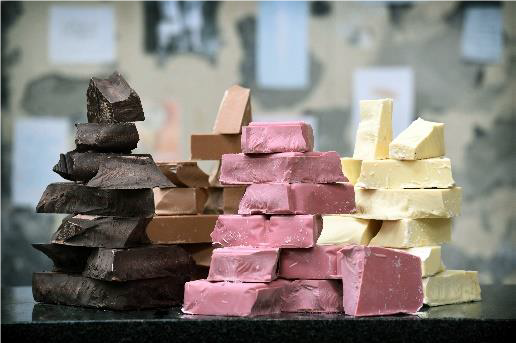Sustainable confectionery in Japan: Movement gaining momentum but still not mainstream

Research revealed that 72% of Japanese consumers now considered sustainability as an important factor when purchasing food and drinks.
Among those planning to purchase sustainable F&B, around 57% of respondents would buy sustainable chocolate.
Pascale Meulemeester, managing director for Barry Callebaut in Japan, told FoodNavigator-Asia that more than 70% of Japanese consumers linked sustainable chocolate products to feeling good, aligning with their values and providing better quality.
She said: “The new Japanese consumers do not just want chocolate that is tasty and good for them, but also good for the planet and its people."
She likened this to the Japanese expression “mottainai” which means “too good to waste”, a Japanese belief that conveys love and respect for nature.
“It is about Japanese consumers wanting to contribute to a better and healthier society through mindful and holistic consumption. By buying sustainable products, it makes them feel good about their purchase, more aligned to their values, and is slowly becoming a new way of life,” Meulemeester added.
Meulemeester said Japan was an important confectionery market because of its size, its move towards premiumisation and its standing as a global trend setter. The chocolate confectionery market in Japan was valued at JPY543.6bn (USD5bn) in 2019, according to Euromonitor.
Collaboration efforts
Barry Callebaut is currently working with Tokyo-based Yuraku Confectionery to drive sustainability in Japan, starting with the latter’s Black Thunder chocolate bars.
Meulemeester said: “We are working with them now to convert their chocolate use towards 100% sustainable products, and we will reach this goal by 2025.”
The Japanese company is driven to create a better future, not only for consumers, for also for cocoa farmers and their families.
According to Meulemeester, Yuraka is also participating in Barry Callebaut’s cocoa horizon programme, which seeks to create a self-sustaining cocoa community.
It is based on three pillars, which are productivity (help the farmers out of poverty by 2025), environment (forest and carbon positive cocoa supply chain), and community (labour, empowerment, income).
Tatsunobu Kawai, president of Yuraku Confectionery said: “Sustainability positions us well, not just today, but for the future. We understand that it is what consumers are asking for and we are happy to partner with Barry Callebaut and its Cocoa Horizons programme to lead the way until it becomes the norm in the market.”
Meulemeester said it hope to call on other companies in the industry to join this movement.
According to Euromonitor’s report on Japan’s chocolate confectionery, Yuraku Confectionery held a market share of 0.9% in Japan (JPY4.9bn/USD46mn).
Barry Callebaut supplies compound coating for Yuraku’s Black Thunder range. In Japan, Barry Callebaut is also working with Morinaga, Lotte, and Asahi on protein bars.
In Australia, it is working with Darrell Lea to develop sustainable chocolate.
APAC and COVID-19
The company recently released its half-year financial results, reporting that its APAC region achieved the highest volume growth and profit.
Ben De Schryver, Barry Callebaut APAC president explained its growth in APAC was fuelled by innovation and sustainability: “Our innovative products such as ruby chocolate continued to make waves in countries such as China, Japan and Taiwan.”
He added that the company was expanding in emerging markets like Thailand where a new office was established in Bangkok recently.
During the COVID-19 pandemic, De Schryver told us following orders by the local authorities, several of its APAC production sites were temporarily closed despite being categorised as a provider of essential food. While production had slowed down, he confirmed that most sites in Asia were still operational.
“With COVID-19 affecting the world right now, our core internal focus is on quality and safety. We help put essential food items on the shelves and we must make sure that our products meet the highest standards,” he emphasised.
The company recently launched a 100% dairy free milk chocolate in Germany earlier this year, with future plans to enter Australia, Japan, and New Zealand. De Schryver told us the plant-based niche is expected to be trending in Asia.












